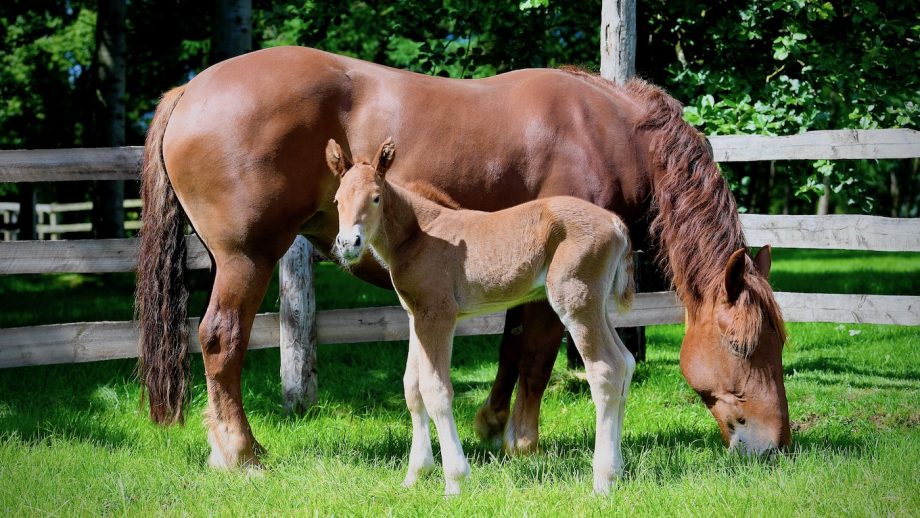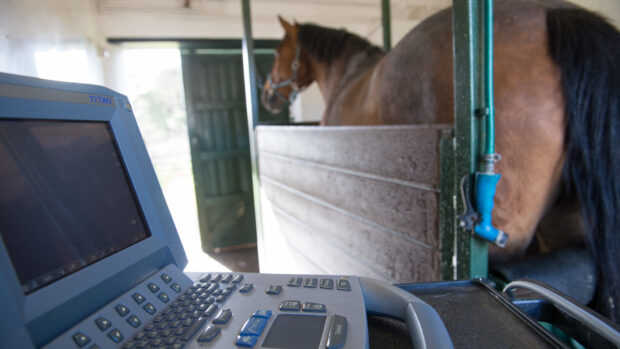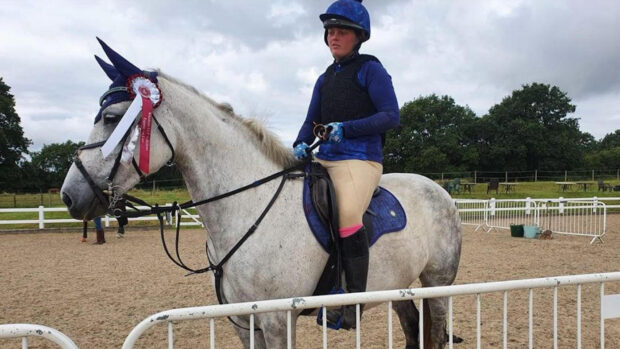Inbreeding is a “contributing factor” to mid- and late-term pregnancy loss in thoroughbreds, new research has shown.
Researchers from the Royal Veterinary College (RVC), in collaboration with Cornell University, analysed 189 DNA samples – including a control group – and found that thoroughbred pregnancies lost in mid and late gestation had “significantly higher inbreeding metrics than UK thoroughbred adults”. But pregnancies lost in early gestation showed “no significant difference” in inbreeding metrics compared to the adults.
An RVC spokesman said that approximately five to 10% of equine pregnancies end in early pregnancy loss, and a further 7% of pregnancies are lost between day 70 of gestation and 24 hours post-parturition. But prior to the study there had been “no definitive analysis to investigate the association between genomic inbreeding levels and pregnancy loss in horses”.
“This research provides critical evidence showing that mating highly related individuals does have a tangible effect on our breeding operations, as there is a real risk of a mare losing her pregnancy late in gestation and failing to produce a foal at all that season,” said lead researcher Jessica Lawson.
“The take-home from our work should be to carefully consider breeding choices that involve mating of highly related individuals as, ultimately, this may increase the chance of the foal inheriting mutations that may not be compatible with life. We are already working on the next step, looking to identify these changes so more specific advice can be provided in the future”.
The Thoroughbred Breeders’ Association (TBA) co-funded the study and has previously funded projects looking into causative factors of pregnancy loss in thoroughbreds.
“Several studies worldwide have indicated rising levels of inbreeding in thoroughbreds, especially during the last 50 years, which have probably been influenced by the dramatic changes in stallion activity that have occurred since then,” said James Crowhurst, chairman for the TBA veterinary committee.
“As an outcome of Professor Mandi de Mestre and Dr Lawson’s original study, which identified further lines of enquiry, the TBA, the Horserace Betting Levy Board and Weatherbys have collaborated to fund a number of ongoing research projects, such as exploring the epidemiology and genetics of congenital musculoskeletal disorders in neonatal thoroughbreds and development of a genetic non-invasive diagnostic test to assess foetal health in the pregnant mare.”
Mr Crowhurst added that the outcomes of the RVC research and the earlier studies are “vital in ensuring the safeguarding of the breed”.
“The findings will be examined by our veterinary committee and communicated to our members and the wider thoroughbred breeding industry once the work has been completed,” he said.
Discussing inbreeding in general, Tullis Matson of Stallion AI told H&H that inbreeding in equines – and endangered species – can lead to an “extinction vortex”.
“It’s not just because of the lack of numbers, it’s the inbreeding. It can cause these issues of early embryonic loss, lower fertility and lower sperm count. What we want to know is, at what percentage of inbreeding do these issues start happening,” he said.
In rare breeds, the breed conservation and management system (BCAS, formerly known as SPARKS) is used to help reduce inbreeding. The system is based on mare- and stallion-based data sheets, which are formulated using genetic analysis. These calculate the mean kinship; the relationship between any one animal and another, and the potential inbreeding from any mating.
Lucy Morgan, Gemini Genetics manager and Stallion AI services lab technician, added that it is positive that research on inbreeding in thoroughbreds is being carried out.
“There are obviously lots of different factors that come into play in breeding horses, and this research may well benefit other breeds too, for example rare breeds where inbreeding occurs. There are quite a few breeders of rare breeds signed up to the BCAS system, but there still are some breeds that aren’t signed up yet, so this may encourage them.”
You might also be interested in:

‘Exciting’ new programme to support thoroughbreds straight off the track

We must act now to save our equine heritage

Subscribe to Horse & Hound magazine today – and enjoy unlimited website access all year round
Horse & Hound magazine, out every Thursday, is packed with all the latest news and reports, as well as interviews, specials, nostalgia, vet and training advice. Find how you can enjoy the magazine delivered to your door every week, plus options to upgrade your subscription to access our online service that brings you breaking news and reports as well as other benefits.





